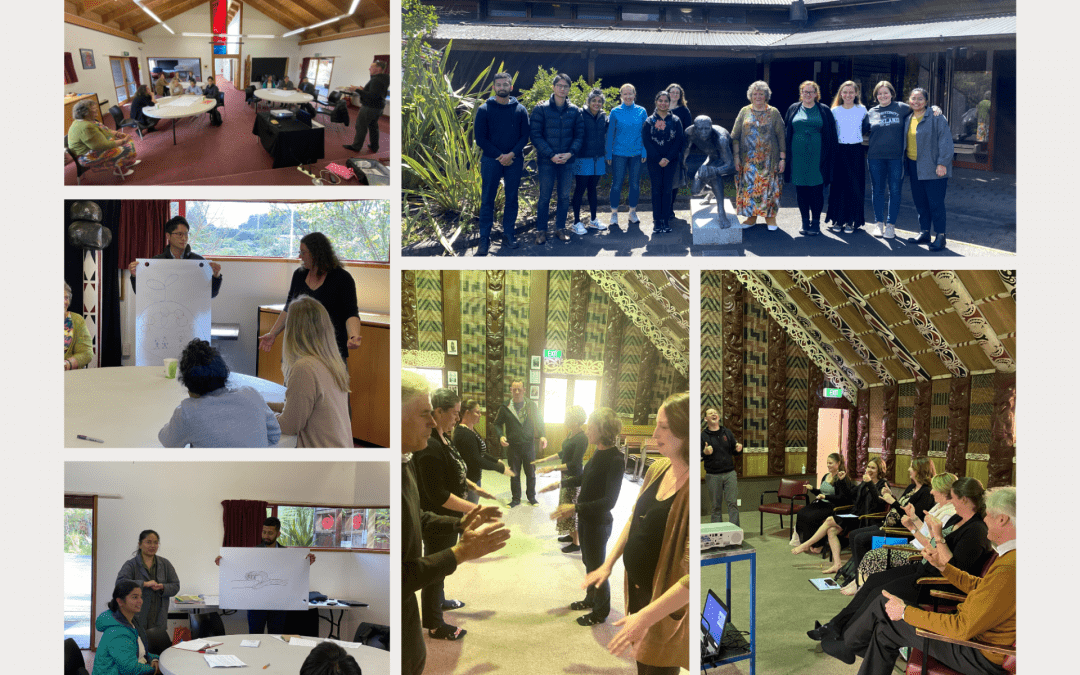Brain Research New Zealand (BRNZ) and Eisdell Moore Centre (EMC) members congregated at the waharoa (gateway) of Te Awataha Marae. Some were nervous, some were excited, and some had mixed emotions about what was to come. The kaikaranga (Māori wāhine caller) called us onto the marae aatea (sacred standing place of Tu Matauenga, the God of War). Every so often the response is led by a senior male under a Ngapuhi custom. When the tangata whenua (hosts) heard mātua Tukaha Milne reply, they answered back with an outstanding haka. In that moment, we felt the wairua (spirituality), mauri (life force/energy) and mana (power).
It was in that pōwhiri process where we began our ‘Takarangi Cultural Competency Wānanga’. Over two days, whaea Moe Milne and mātua Tukaha provided an introductory to the ‘Takarangi Competency Framework’ (TCF), a framework steeped in Mātauranga Māori (an indigenous knowledge system) that focuses on reflexive practice and service delivery. Dr. Meagan Barclay – EMC Research Operations Manager – found the Takarangi wānanga as incredibly valuable in her journey of learning more about Te Ao Māori and to build her cultural competency. Cultural competence used in the TCF does not mean to be competent in another culture but to integrate clinical input and cultural values and practice. This was useful for Dr. Catherine Theys – a researcher at Te Kura Mahi ā-Hirikapo, Te Whare Wānanga o Waitaha (School of Psychology, University of Canterbury) – who reported, “there were a lot of opportunities for discussions that were very relevant to the specific research that we are doing”.
We took part in a range of interactive activities. From kinaesthetic brain games and sharing pūrākau (stories) to reading whakatauki (proverbs). One whakatauki read, “Ki te kāhore he whakakitenga ka ngaro te iwi. Without foresight or vision the people will be lost”. A message from Kingi Tawhiao to encourage people to appreciate the urgency of unification and strong Māori leadership.
These are our first steps towards creating culturally safe research, and we hope that in the near future other EMC members take a dive into this journey with us. A special thanks to Chelsea Cunningham of BRNZ, Moe and Tukaha Milne, the Awataha Marae whānau and Rehua Marae whānau for your aroha and manaaki.
